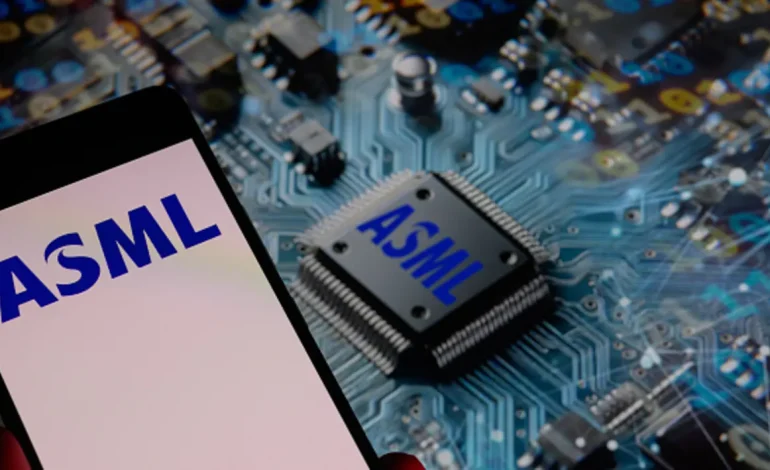ASML, a critical supplier of chipmaking machines, said it may not achieve growth in 2026, breaking a decade-long streak of annual revenue expansion.
The uncertainty stems from US tariff policy, which is making chipmakers hesitant to invest in new factory equipment in the US.
“The level of uncertainty is increasing, mostly due to macroeconomic and geopolitical considerations. And that includes, of course, tariffs,” ASML’s Chief Executive Christophe Fouquet said in an internal interview on the company’s website.
ASML CFO Roger Dassen said uncertainty over potential US tariffs is causing clients to pause spending decisions. A 30% tariff could increase the cost of one of ASML’s high-end machines from €250 million to €325 million. Additional tariffs may apply to components shipped multiple times between Europe and the US.
After this announcement, ASML shares plunged 7.8%, heading for their worst single-day drop since October. Other European chip equipment makers, such as ASM and BESI, also saw share prices decline.
The company’s outlook appears mixed despite strong Q2 net sales of €7.7 billion (vs. €7.52B expected). ASML net profit is at €2.29 billion (vs. €2.04B expected), with net bookings at €5.54 billion (25% above forecasts), a strong signal of customer demand.
AI chipmakers—like Nvidia and Apple—continue to drive demand for ASML’s EUV lithography machines, which made up 42% of bookings.
ASML still expects 2025 sales to grow 15%, in line with adjusted guidance.
However, ASML CEO Christophe Fouquet said geopolitical and macroeconomic risks—especially tariffs—make 2026 forecasts too uncertain to confirm:
“Looking at 2026, we see that our AI customers’ fundamentals remain strong,” Fouquet said in a statement. “At the same time, we continue to see increasing uncertainty driven by macroeconomic and geopolitical developments. Therefore, while we still prepare for growth in 2026, we cannot confirm it at this stage.”
2026 would mark the first non-growth year since 2012 if the outlook worsens.
Sales to China remained high at 27% of total system sales, despite earlier forecasts predicting a decline to 20%. Chinese firms are stockpiling older machines, anticipating more US export restrictions.
The surge in demand for AI chips is a major tailwind for ASML’s EUV technology. The company also shipped one next-generation “High NA” EUV machine—crucial for future chip advancements.
CFO Dassen said AI demand is now “a big driver for EUV,” helping offset some negative effects of trade restrictions.
ASML is seen as vital to the global semiconductor supply chain, supplying key equipment to chip giants like Intel, TSMC, and Samsung. Analysts say the strong Q2 performance reassures investors in the short term, but 2026 remains clouded by trade policy risks.
“The second quarter beats from top to bottom,” analyst Michael Roeg of Degroof Petercam said.
($1 = €0.8608)










The latest news in your social feeds
Subscribe to our social media platforms to stay tuned